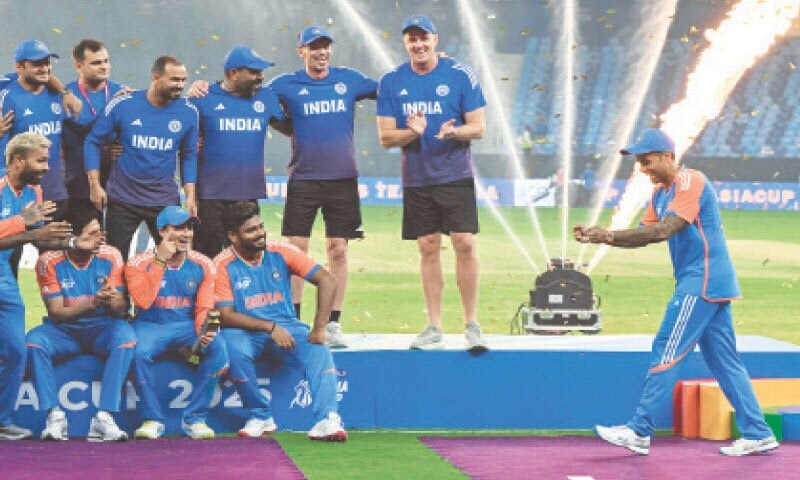The fallout from the Asia Cup has escalated tensions between India and Pakistan, highlighting the intersection of sports and geopolitics. The Indian cricket team's refusal to accept the winning trophy from Mohsin Naqvi, who is both the Asian Cricket Council president and Pakistan's interior minister, has ignited a wave of criticism and accusations. Pakistan's captain Salman Agha condemned India's actions as a disrespect to cricket, while Indian players expressed feelings of being denied recognition despite their victory. This incident underscores the deteriorating relationship between the two nations, which now only compete on neutral grounds due to heightened political and military tensions.
The implications of this controversy extend beyond the cricket field, revealing how sports can become a battleground for national pride and political messaging. Indian Prime Minister Narendra Modi's rhetoric, likening cricket to military triumphs, has drawn backlash even from within his own party, suggesting a growing awareness of the need to separate sports from warfare. As both sides engage in a war of words, the call for sportsmanship and the spirit of the game is increasingly overshadowed by political agendas. The situation calls for a reevaluation of how cricket, a unifying force for many, can be preserved from the divisive narratives that threaten its integrity.









